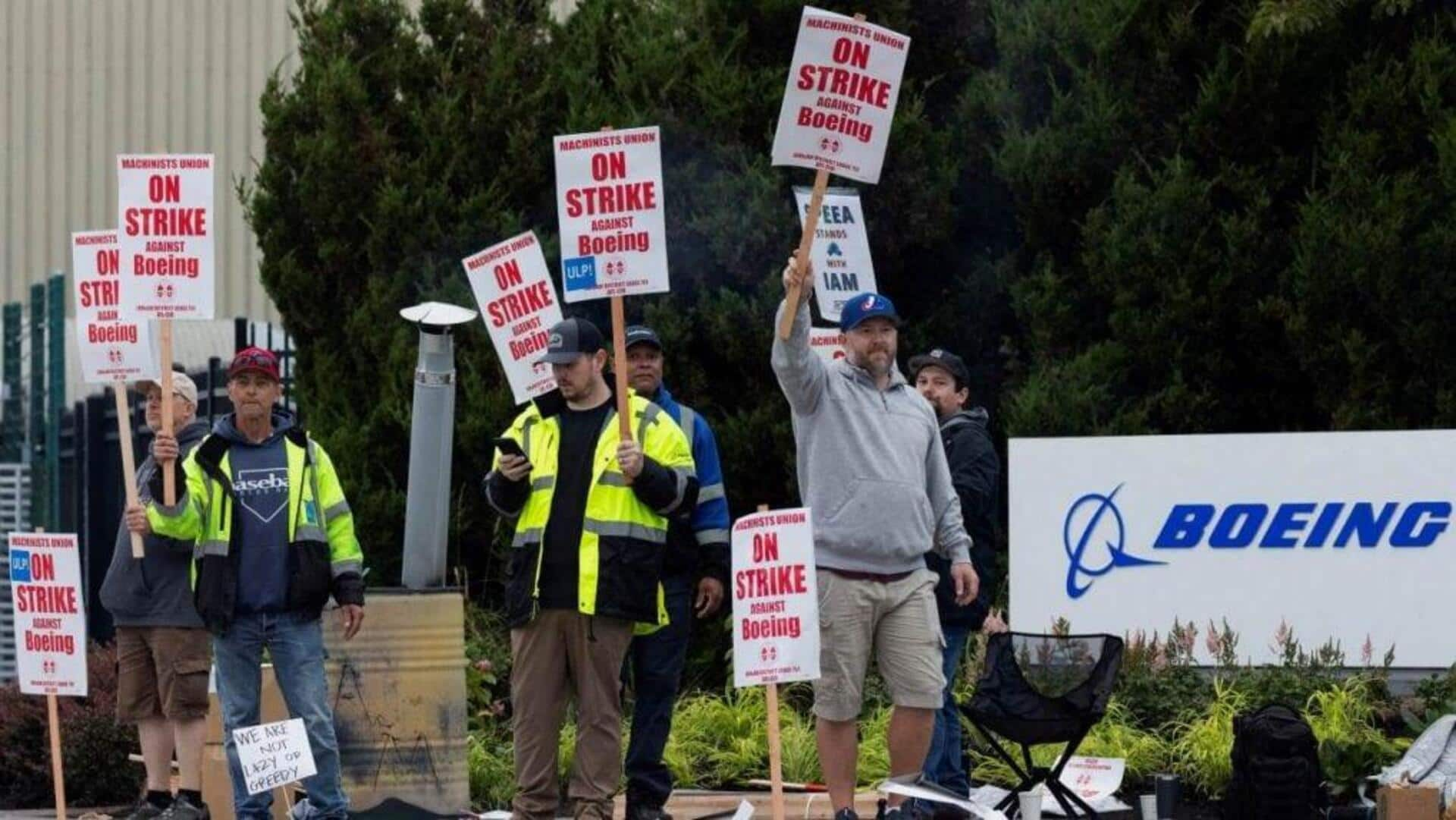
Boeing workers could continue to strike for better benefits
What's the story
Boeing is currently facing its first strike in 16 years, as over 30,000 factory workers demand higher wages and an improved pension scheme. The striking workers are members of the International Association of Machinists and Aerospace Workers (IAM), who rejected Boeing's initial contract offer. Union leader Jon Holden has warned that the strike could continue for a significant period, potentially impacting Boeing's finances and production schedule.
Contract rejection
Boeing's initial contract offer rejected
The IAM members, responsible for producing Boeing's top-selling 737 MAX and other jets in Seattle and Portland, initiated the strike on Friday. This action was taken after over 94% of workers voted against an initial contract offer that Holden had endorsed. The union leader stated that his members' priorities were a larger wage increase and the reinstatement of a defined-benefit pension scheme lost in previous negotiations with Boeing.
Discontent
Union members express dissatisfaction
The initial deal proposed by Boeing included a 25% pay rise over four years and a commitment to build its next commercial jet in the Seattle region. However, union members expressed dissatisfaction with this offer, stating that the removal of a performance bonus would erode half of the headline salary increase. This discontent among workers has contributed to Boeing's stock falling 3.7% on Friday and nearly 40% so far this year, reducing the company's market value by approximately $58 billion.
Financial impact
Strike could exacerbate Boeing's financial woes
A prolonged strike could worsen Boeing's financial situation, already burdened with a $60 billion debt pile. It would also affect airlines operating Boeing jets and suppliers that manufacture parts. The machinists earn an average of $75,608 per year without overtime, which would increase to $106,350 at the end of the four-year contract as per Boeing's proposal. However, this fell short of the union's initial demand for 40% pay raises over three years and restoration of traditional pensions axed decade ago.
Worker sentiment
Workers express disappointment with initial offer
Boeing worker Adam Vogel described the 25% raise as "a load of crap. We haven't had a raise in 16 years." Another employee, Broderick Conway, expressed similar sentiments, stating that the company can afford more. "A lot of the members are pretty upset about our first offer. We're hoping that the second offer is what we're looking for," he said. These statements reflect the widespread dissatisfaction among workers with Boeing's initial contract offer.